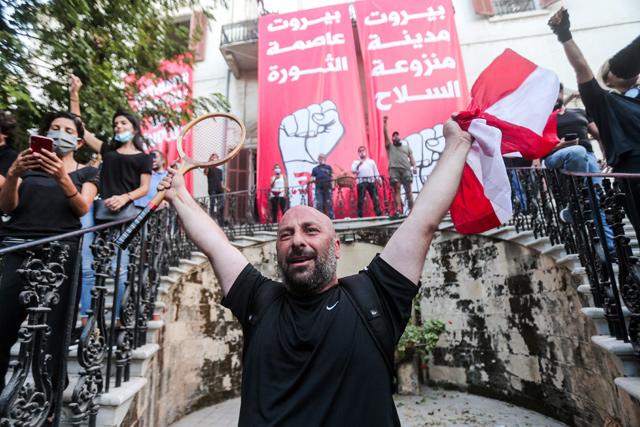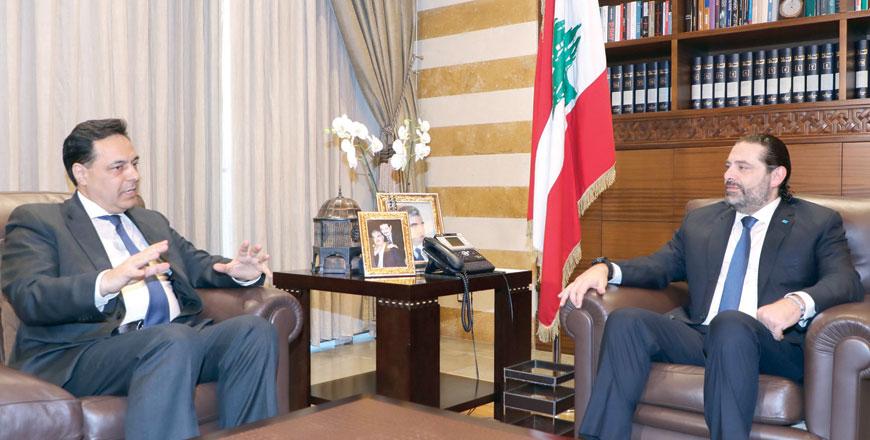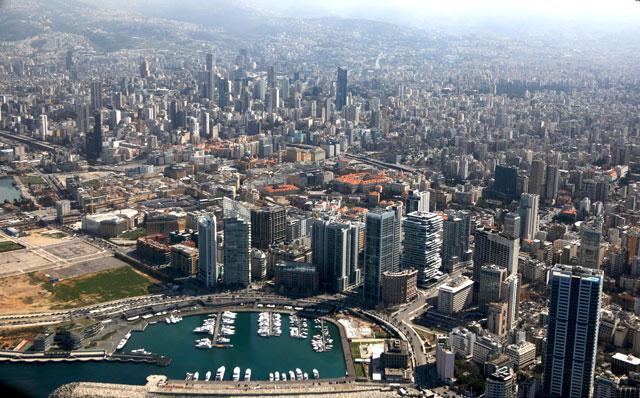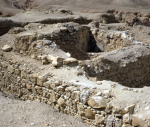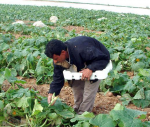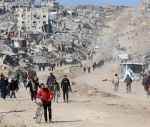You are here
Hundreds of anti-government protesters flood Beirut afresh
By AFP - Jun 07,2020 - Last updated at Jun 07,2020
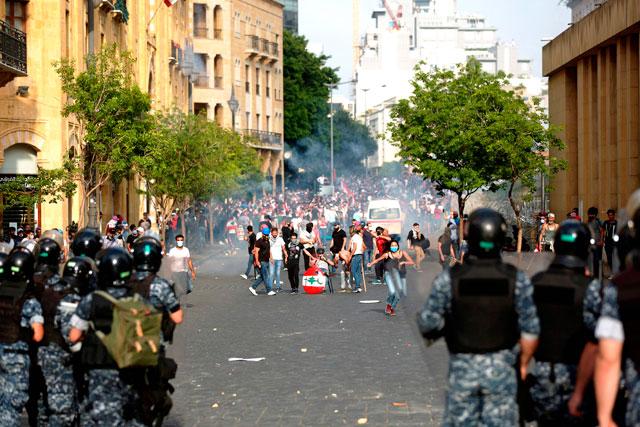
Lebanese protesters clash with riot police following a demonstration in central Beirut on Saturday (AFP photo)
BEIRUT — Protesters poured into the streets of the Lebanese capital Saturday to decry the collapse of the economy, as clashes erupted between supporters and opponents of Hizbollah.
Hundreds filled the streets in and around the protest hub of Martyrs Square in the centre of Beirut, blaming a lack of government reforms for the economic crisis.
Debt-burdened Lebanon is grappling with its worst economic turmoil since the 1975-1990 civil war, now compounded by a lockdown to stem the novel coronavirus.
"We came on the streets to demand our rights, call for medical care, education, jobs and the basic rights that human beings need to stay alive," said 21-year-old student Christina.
But Saturday's protest turned violent as supporters of Hizbollah clashed with some demonstrators who were demanding that the Iran-backed Shiite group disarm.
Hizbollah is the only group to have kept its weapons since the end of the Lebanese civil war in 1990 and this has deeply divided Lebanon along political lines.
"No to Hizbollah, no to its weapons," said a sign held up by Sana, a female protester from Nabatiyeh, a city in southern Lebanese, a Hizbollah stronghold.
“Weapons should be only in the hands of the army,” said the 57-year-old.
Supporters and opponents of Hibzollah threw stones at each other prompting the army to intervene by forming a human chain to separate them, an AFP photographer said.
Supporters of Hizbollah, which is also represented in the government and parliament, chanted: “Shiite, Shiite.”
Security forces also fired tear gas near a street leading into the parliament building behind Martyrs Square, after some demonstrators pelted them with stones and ransacked shops in the area.
The Lebanese Red Cross said on Twitter 37 people were wounded in Saturday’s violence, most of them treated at the scene.
Lebanon has been rocked by a series of political crises in recent years, before an economic crunch helped trigger unprecedented cross-sectarian mass protests in October.
The protests forced the government to resign and a new one headed by Prime Minister Hassan Diab was approved by parliament in February, tasked with launching reforms and combatting corruption.
But many Lebanese say it has failed to find solutions to the country’s manifold problems.
More than 35 per cent of Lebanese are unemployed, while poverty has soared to engulf more than 45 per cent of the population, according to official estimates.
Lebanon is also one of the world’s most indebted countries with a debt equivalent to more than 170 per cent of its GDP. The country defaulted on its debt for the first time in March.
Diab’s government adopted an economic recovery plan in April and has begun negotiations with the International Monetary Fund, in a bid to unlock billions of dollars in aid.
Related Articles
BEIRUT — Lebanese protesters stormed the foreign ministry in Beirut on Saturday as anger exploded over a deadly blast that made hundreds of
BEIRUT — Lebanon's prime minister-designate launched consultations on Saturday to form a desperately-needed government for a protest-hit cou
BEIRUT — Lebanon, shaken by street protests and economic crisis and now set to default on its Eurobond debt, has pledged reforms that will s


